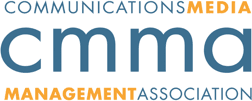The CARES (Coronavirus Aid, Relief, and Economic Security) Act passed last March at the height of the pandemic resulted in a slew of new tax incentives, programs, and legislation. Such measures will require a keen eye and a closer look when your business and/or your clients go to file their taxes this year.
Here’s a quick rundown of some of the most common programs:
- Paycheck Protection Program (PPP): Many businesses received a PPP Loan in 2020 to help keep their team members on the payroll. Those who received funding last year must keep track of how that money was spent. In June 2020, The Flexibility Act was signed into law, altering loan forgiveness requirements. Under the act, 60% of a business’s PPP loan could be spent on payroll, while the remaining 40% could be used on rent, mortgage interest, and utility bills. While forgivable funds are not being considered taxable income for 2020, any funds not falling under this banner will be taxable business income. Lenders should have already provided PPP Forgiveness Applications, which will need to be completed to include the following information:
– Payroll and Nonpayroll Costs– Business Mortgage Interest Payments
– Business Rent or Lease Payments
– Business Utility Payments
– Total Salary/Hourly Wage Reduction
Additionally, every employee on payroll during the period of coverage must be listed on a PPP Schedule A Worksheet, along with their wages, hours, and any wage reductions.
The list of forgivable expenses has grown in 2021 with the passing of the Coronavirus Response and Relief Supplemental Appropriations Act. These non-payroll costs now include:
– Software and cloud computing services.
– Property damage expenses that are not covered by insurance and resulting from civil unrest
– Essential supplier costs that were paid before receiving the PPP.
– Worker protection equipment (PPE) expenses.
- Employee Retention Tax Credit (ERTC): Businesses that had to suspend operations – whether fully or partially – during any quarter of 2020 were eligible to claim the ERTC, assuming it is not a sole proprietor and did not receive PPP funding. The credit is the equivalent of 50 percent of a company’s employee wages between March 12, 2020, and January 1, 2021. The ERTC is also applicable if a business’s gross receipts suffered a substantial decline.
- Payroll Tax Deferment: Eligible employers had the option of deferring their company’s portion of Social Security tax on employee wages from March 27 until Dec. 31, 2020. They are required to pay half of that amount by Dec. 31, 2021, while the remainder must be satisfied a year later. Businesses receiving a PPP loan were not eligible for the deferment.
- Families First Coronavirus Response Act (FFCRA): Companies that provided sick and/or family leave to employees who were affected by the pandemic can receive tax credits for the entirety of sick-leave and family leave pay, as well as qualified healthcare plan expenses, and the employer’s portion of FICA taxes regarding sick-leave costs.
- Expansion of Charitable Gift Deductions: Only available to C Corps organizations, cash donation limits were raised to 25% (from 10) for the 2020 tax year.
- Expanded Interest Deduction: For tax years 2019 and 2020, deductible business interest expense increased to 50% of Earnings Before Interest, Taxes, Depreciation, and Authorization (or EBITDA).
- Individual Business Loss Deduction: Previous limitations were suspended for the 2018-2020 tax years for owners claiming business-related losses on their individual returns. (Limitations had been $500,000 for couples and $250,000 for others).
It will also be crucial for businesses selling taxable goods to keep a keen eye on how sales tax collection from remote and marketplace sellers are handled from state to state.
Those states hit hardest by the pandemic will likely be enforcing strict compliance on businesses that sell services and products beyond borders. Companies that have hired out-of-state employees, too, must register for foreign qualification and be prepared to pay taxes to the state in question.
Several complexities surround these new tax incentives and programs, posing numerous filing challenges for employers and small businesses this tax season.
Additionally, rules, regulations, and updates are always on the move, which makes adherence and compliance an even more daunting prospect on the heels of a tumultuous year.
Maslow Media Group helps our clients navigate these demanding and confusing times.
As a leading Payroll company and Employer of Record, MMG can relieve you of your payroll tax compliance concerns, while handling all related expenses, insurance, and more. Compliance is what we do, day in and day out, and we will help you. Reach out to us today to learn more and request a quote.
The post New Tax Incentives and Programs Require Special Attention for 2021 Tax Season appeared first on Maslow Media.

